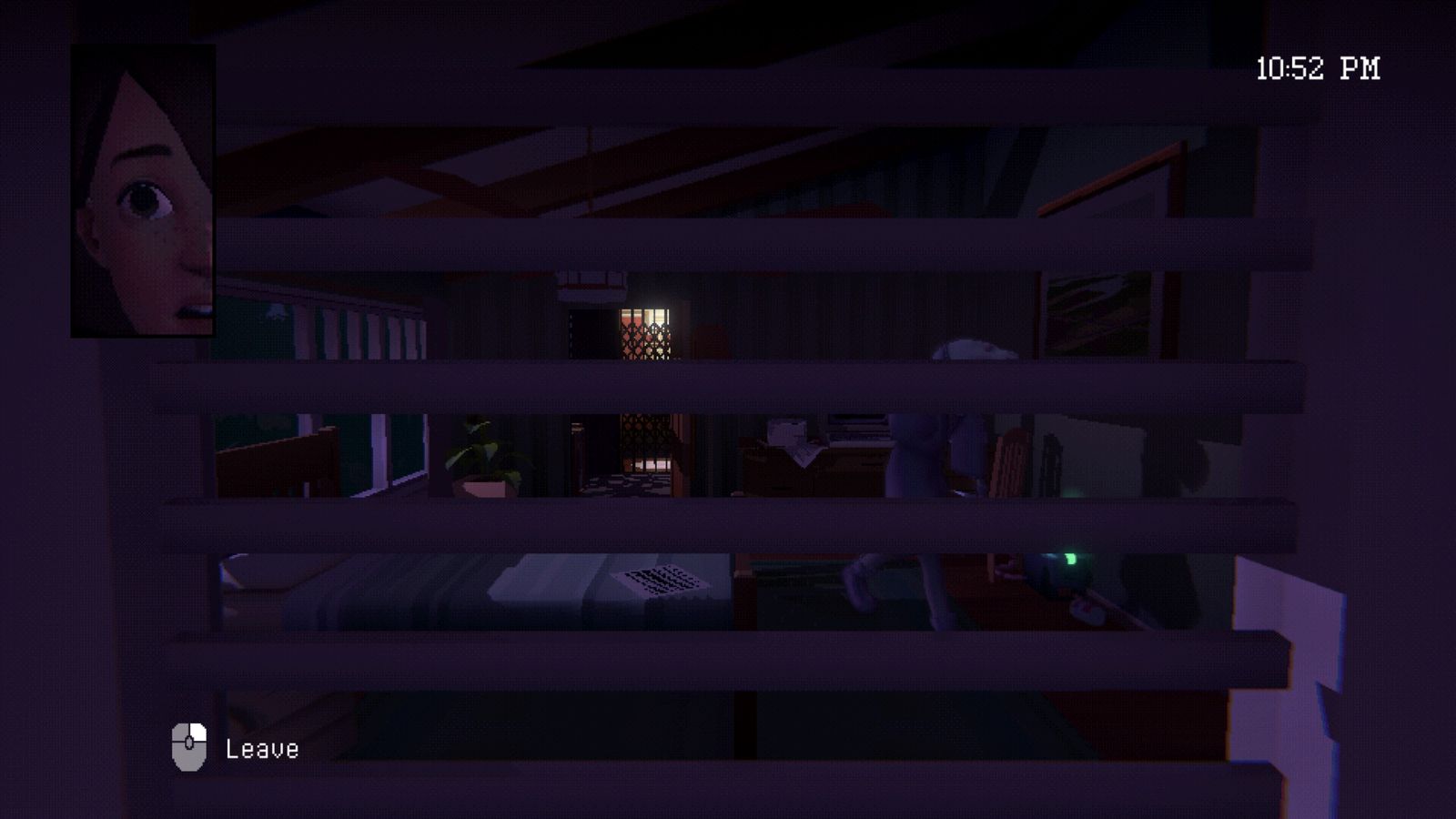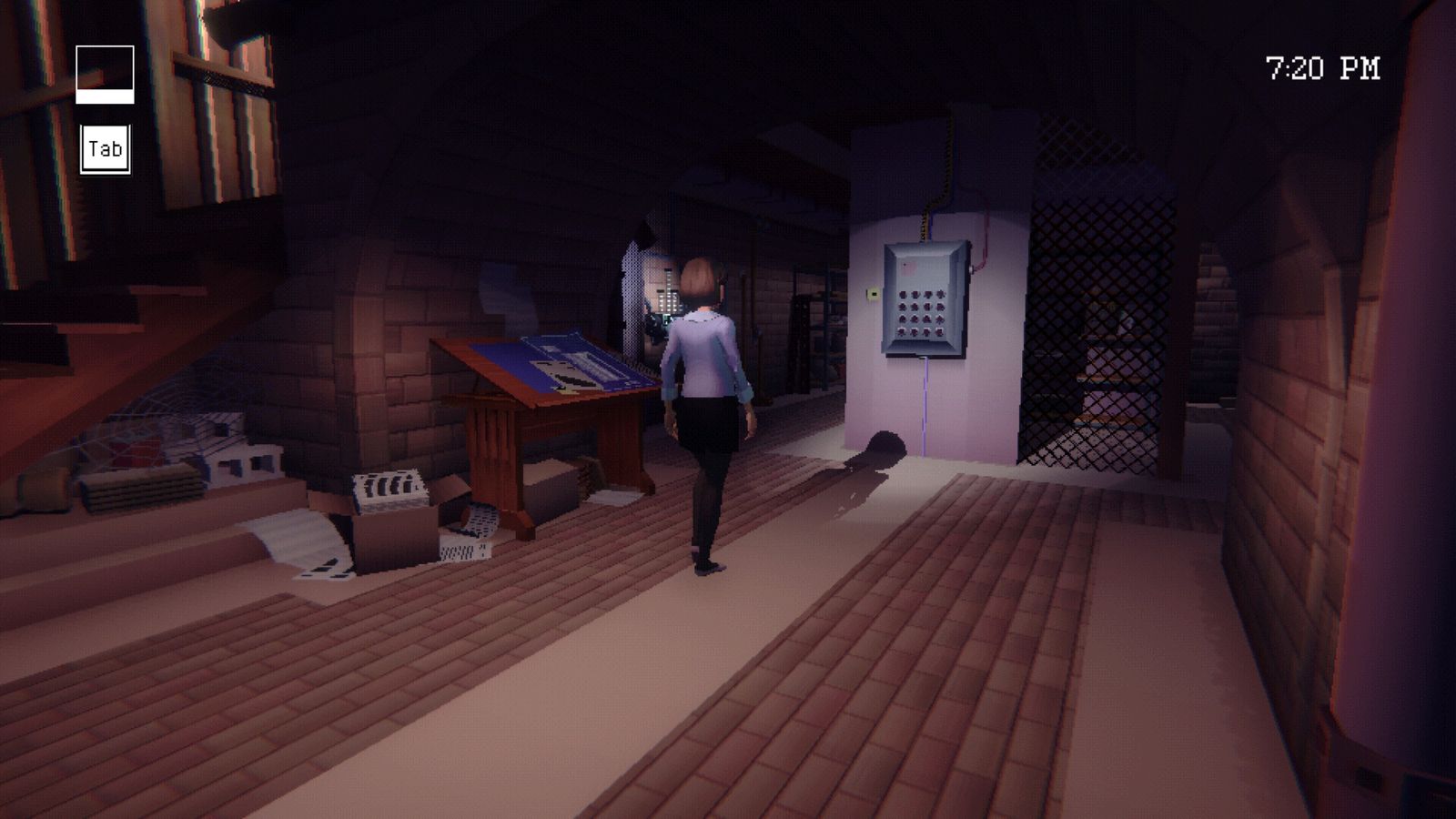ADDICTION TO FEAR
Horror is a special genre, isn’t it? It’s difficult to drop into another genre and get immediately immersed in the same way a horror game draws you in. You don’t even notice the primal fear that courses through your veins, your heavy breathing as you might instinctively hold your breath to avoid making a noise. Whatever it might be, horror games just have that kind of effect. Or, at least, a good one should.
Does Homebody carry the same level of stress that you might hope to experience in other horror titles? That’s a question we’ll answer in a bit, but first let me explain to you what your purpose is in this game.
WHO ARE YOU?
Your name is Emily. You begin in your car, questioning whether or not it’s worth making your way to an isolated house and spending time with some old friends. You suffer from agoraphobia, the fear of leaving your safe space, and the anxiety is crushing you. With the help of a friend on the phone you manage to pull through and continue your drive. Upon arrival, you’re greeted by a number of old friends — most of which are happy to see you, and another who seems to be rather dismissive. You step into your rickety home for the next couple days, catch up with everyone, and explore the house some more. It’s rather dilapidated, and the owner seems to be into some strange things. They even have a rule book that all occupants are ordered to follow, with strange requests like “no knives are to be brought into the house”. But you pass it off, and continue making your way around the house. You realize how strange the owner is. Why is there a lock on the door? Why are there cables running up and down the house? How come the attic and basement are locked tight?
The grandfather clock chimes, welcoming the beginning of a new hour. You make your way back into the living area, but no one is to be found. Where did they go? You explore some more, maybe they went towards the kitchen? Or upstairs? You venture forth. Why is there blood on the ground? You look around further, and find your answer.
You are not safe
UNNERVING EXPERIENCE
Homebody has this gripping, sinking feeling that I imagine you can only experience as being a victim in a slasher film. The PlayStation-styled graphics and gameplay that you might have experienced in older Resident Evil titles further adds to the fear you’ll quickly experience as you find out what exactly is prowling around this strange home. In a tense situation, Emily’s face will pop up on the corner of your screen and her breathing will get heavier. The music will change and the… entity… will follow you. Use one too many hiding spots, and they’ll begin to break down. If you fail to avoid the creature, you’ll be met with a terrible fate.
Unlike most horror games, death is not simple. In fact, two major things happen. Firstly, you’ll slowly understand what your purpose is in this game, why you can’t simply just “die” and be done with the experience. Death provides a window to the secrets this game has to offer, as well as a hint at what you might be enduring and how you can progress. The other thing you’ll immediately notice is that you’re not simply restarting from a checkpoint. You did, in fact, die, but you’re in a kind of purgatory until you figure out how to truly escape from this house. The loop begins again upon every death. The puzzles reset, but the answers stay the same. Your friends don’t realize the hell they’re currently enduring, but that will slowly start to break down. You’ll retain your memories in a log that you can access, helping you get further along upon every run through the house. You’ll complete puzzles faster and faster, and eventually, you’ll solve the predicament that you’re currently in.
THE NEGATIVES
It’s an intriguing game, but it’s not one without one major issue — fear and repetition. Whether or not we admit it, we play horror games for the addiction of that adrenaline spike. That terrifying feeling we experience when we’re being chased, when the music shifts and we subconsciously realize that we’re no longer alone, the dread as we progress through unknown passages, all the while we’re just waiting to be grabbed by some unseen entity. When that’s done correctly, that terrifying feeling is so palpable and prevalent that we’ll never stop experiencing it. And Homebody succeeds in this until you realize that being killed by that entity is as basic as opening a door, or reading a note.
The issue stems from the helpfulness of the game. Dying is one of the most, if not the most, important mechanic in any horror game. When we die in games, we’re reset to a checkpoint or back to the start of a level. The sinking feeling of realizing that all that time spent to progress through a level, just to be caught, killed, and sent back to the beginning is important because if we don’t get it right we’ll then have to experience the scares over and over again. If we want to progress, we have to find a balance between playing it safe and facing our fears. In Homebody, we’re given tools to remember solutions to puzzles, so it’s extremely easy to find your way back to your last puzzle. If we get ourselves into a position where we can’t simply avoid this unwanted occupant, being jumpscared and killed by it doesn’t really seem all that scary. The adrenaline rush subsided the moment I realized this.
IN A POSITIVE LIGHT
The game does succeed on other fronts. The surge of satisfaction from completing a puzzle is incredible, and the slow worldbuilding told through unique and interesting ways is such a clever way to add to the overall mystery. Homebody’s puzzles are true headscratchers as well. For example, one puzzle has you complete a game of Minesweeper. On completion, you’ll need to use the spots where the bombs are marked to unlock a door in the basement. The puzzles roll off of each other, and the difficulty here stems from locating which one links to what.
The other feeling of agoraphobia is equally palpable. The madness you’ll slowly fall into when you realize that you’re really, truly alone — no matter who is around in the early hours before the murderer wakes up. Although Homebody might fail in keeping you scared, it does succeed at making you feel like you’re really Emily. You understand her fear of isolation, her anxiety as she slowly comes to terms with the damage she’s done to the people who care about her, the slow breakdown of the overall mystery. All of it, it’s unnerving.

























